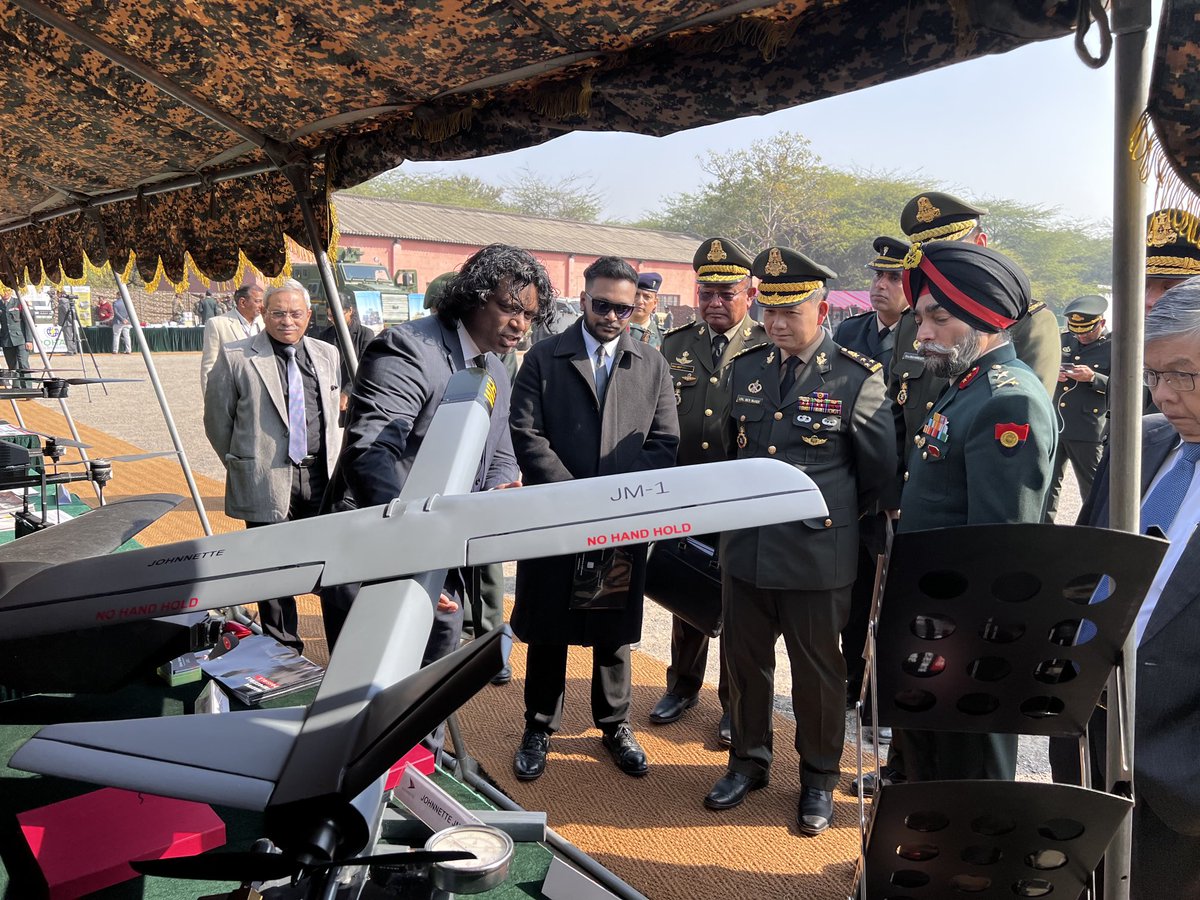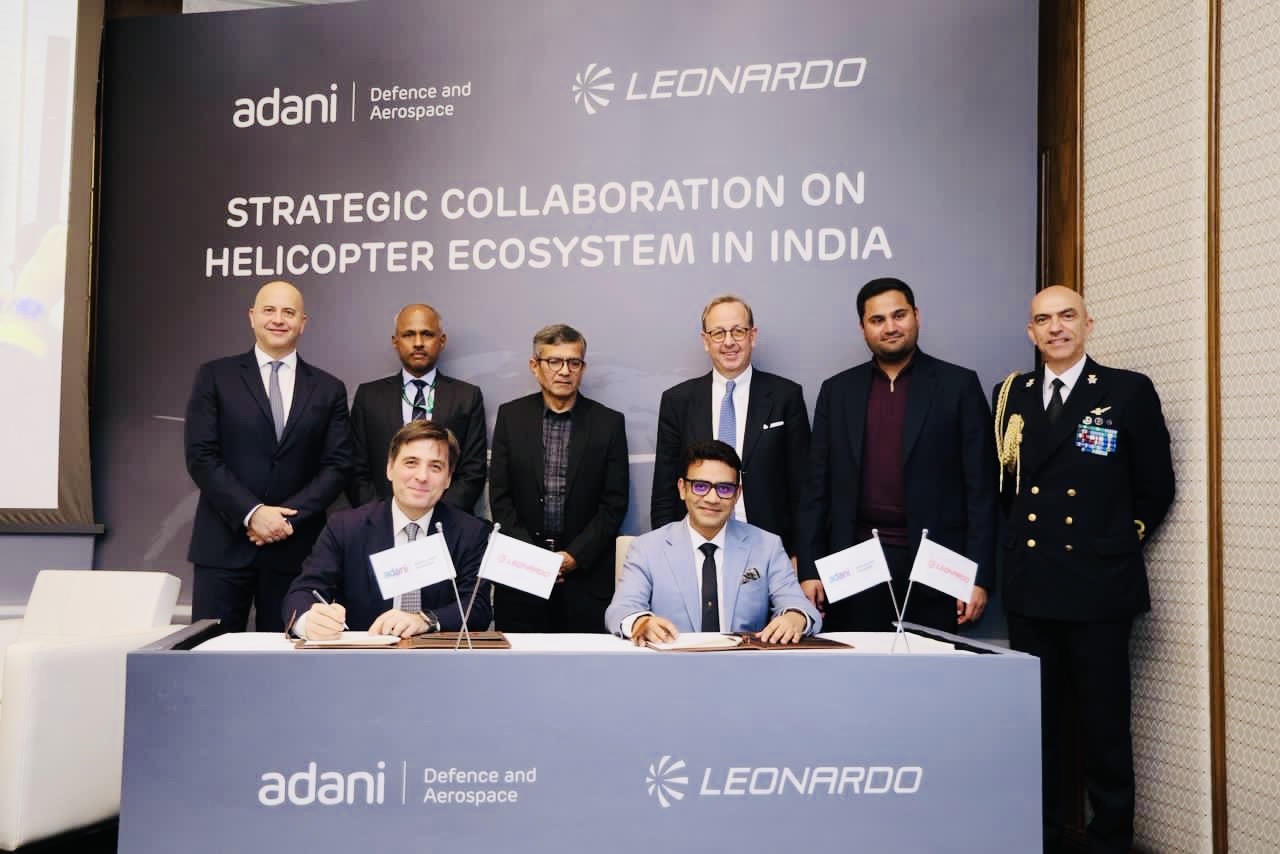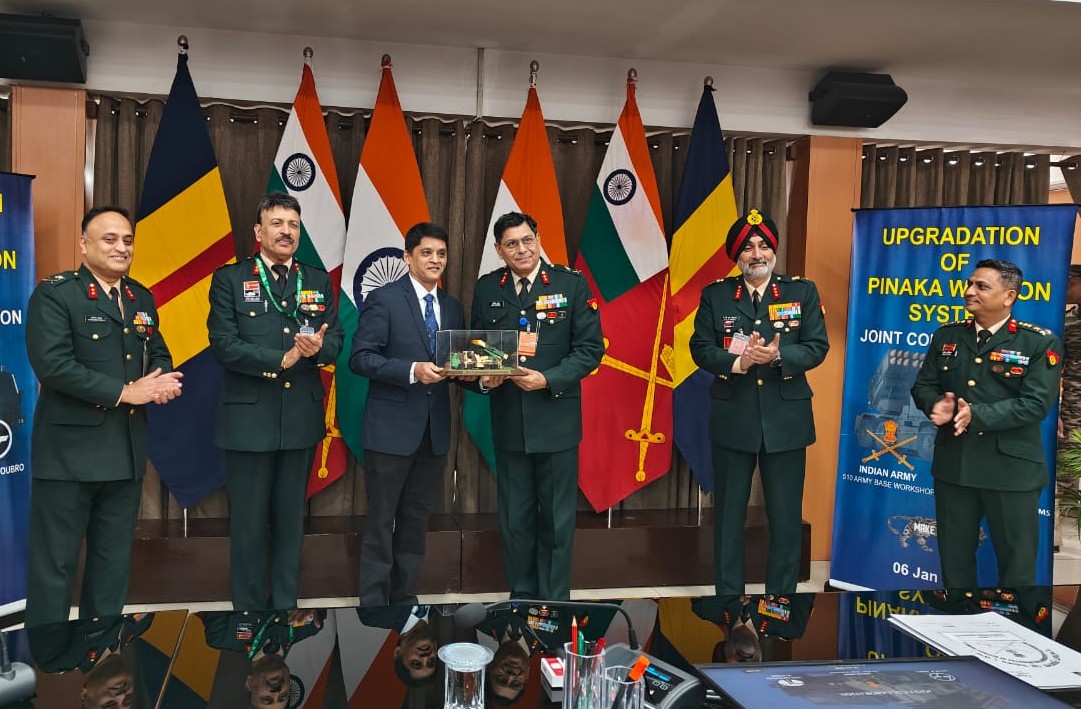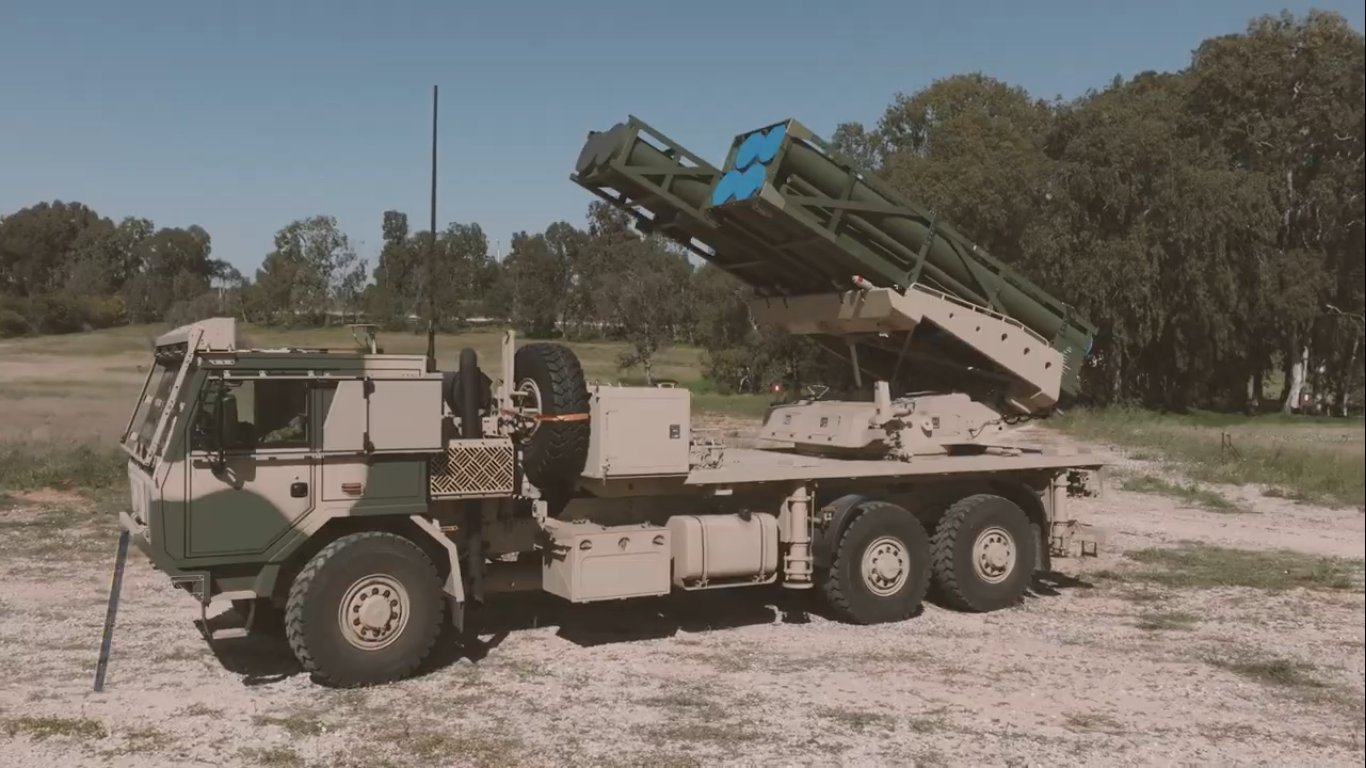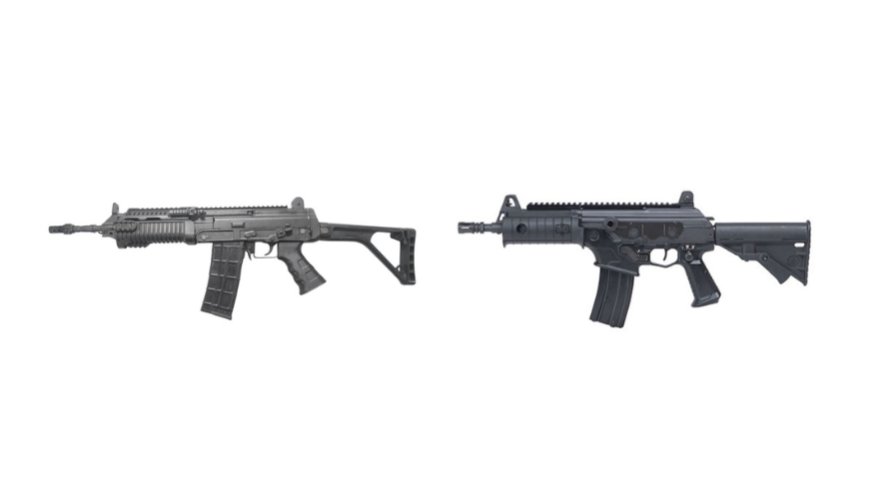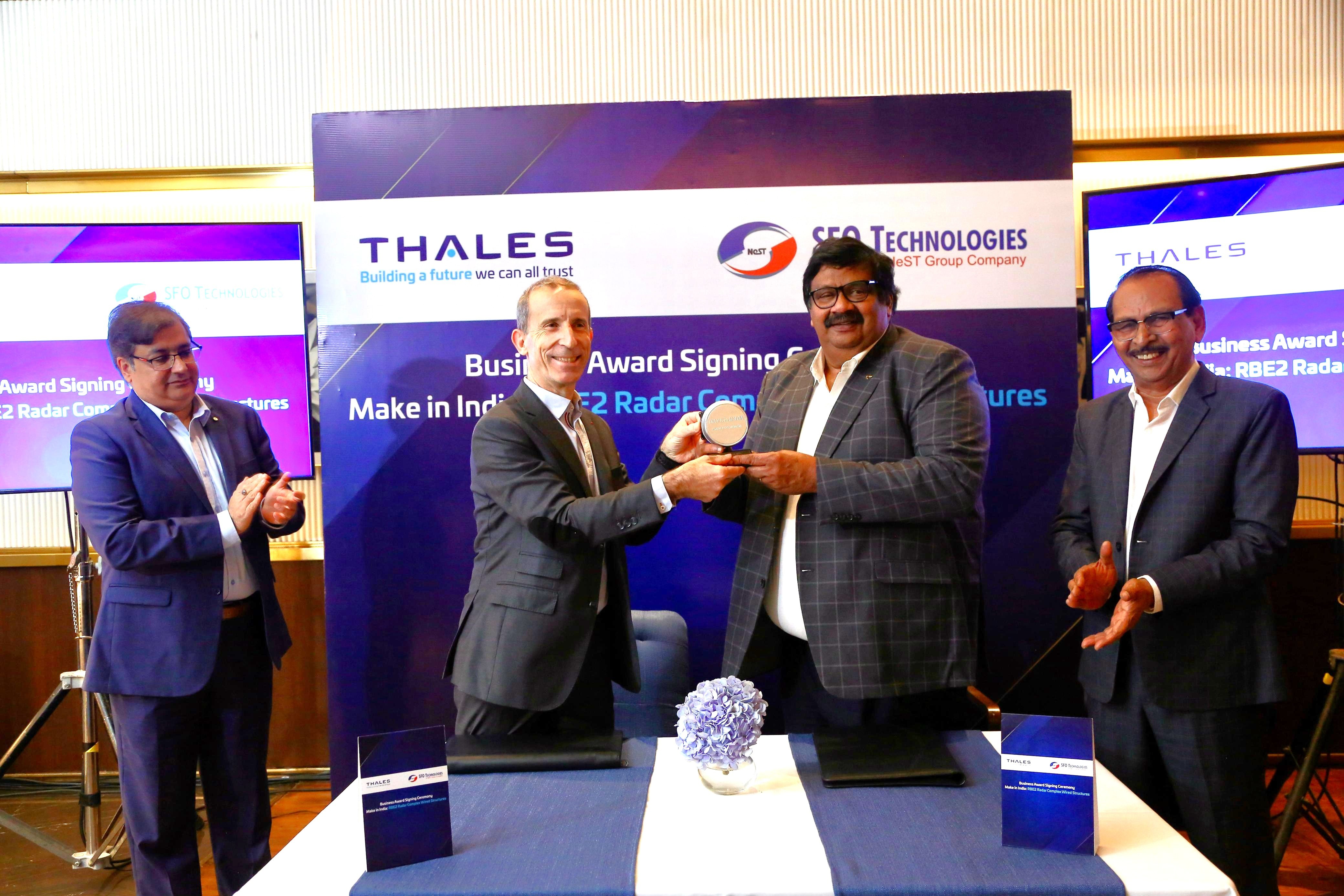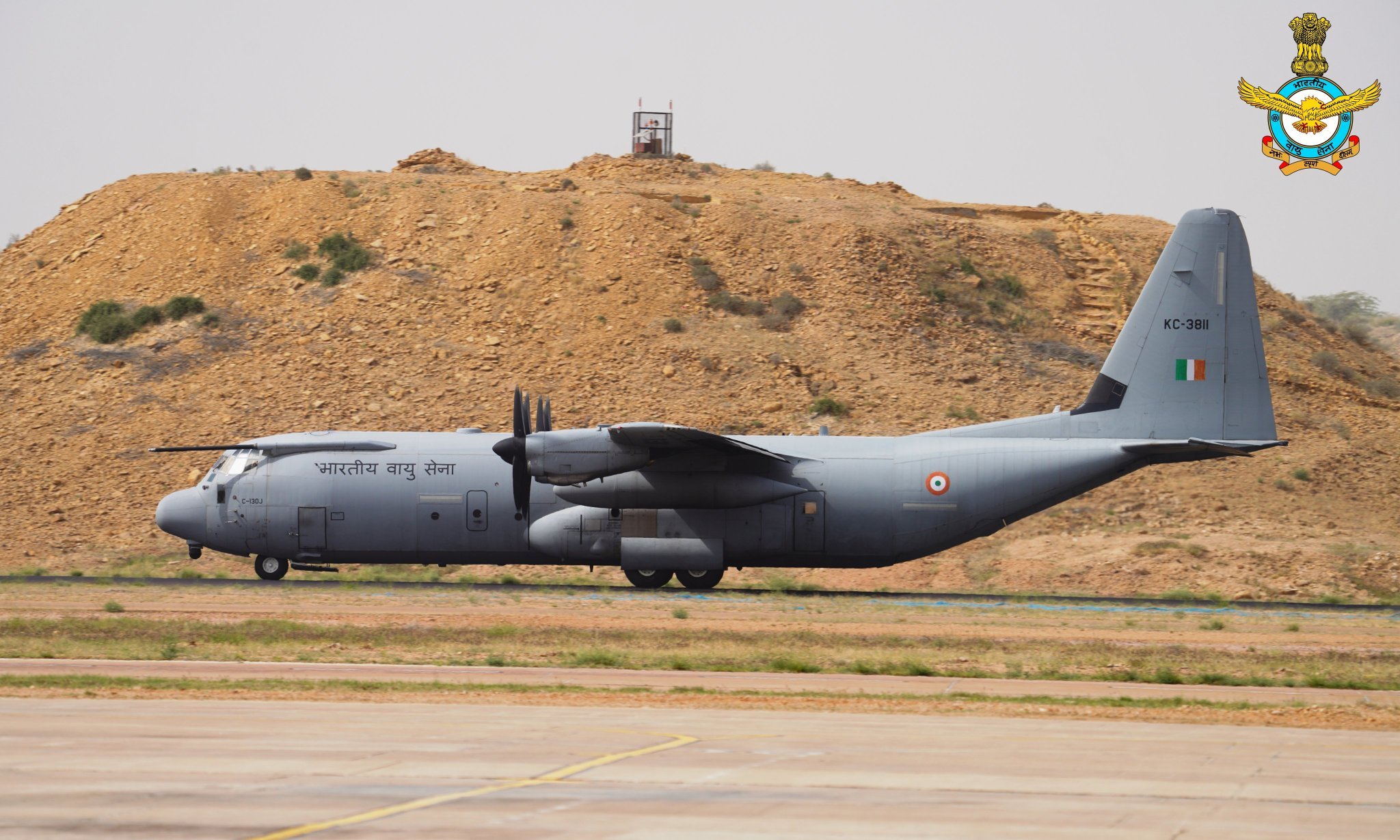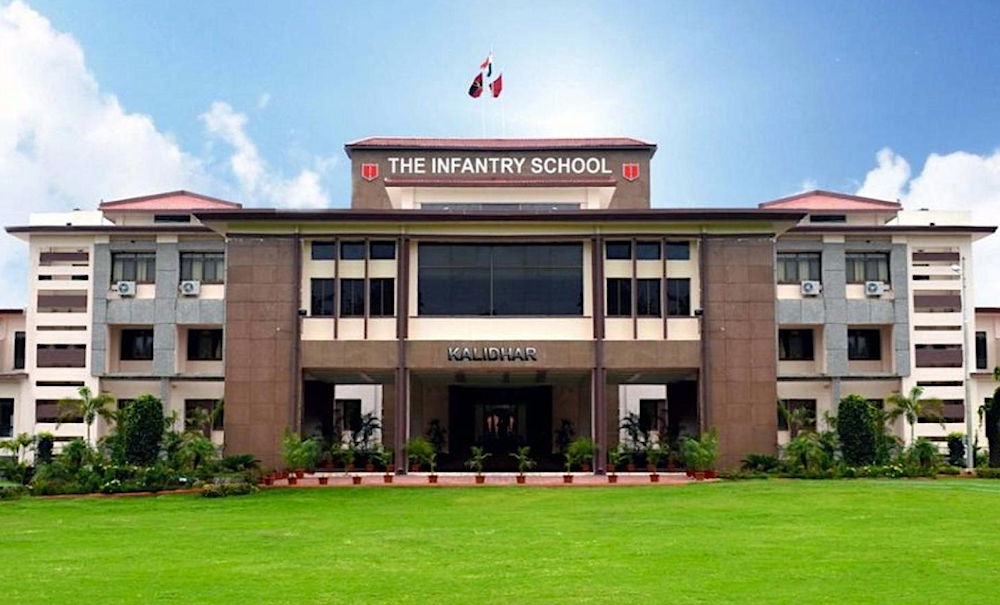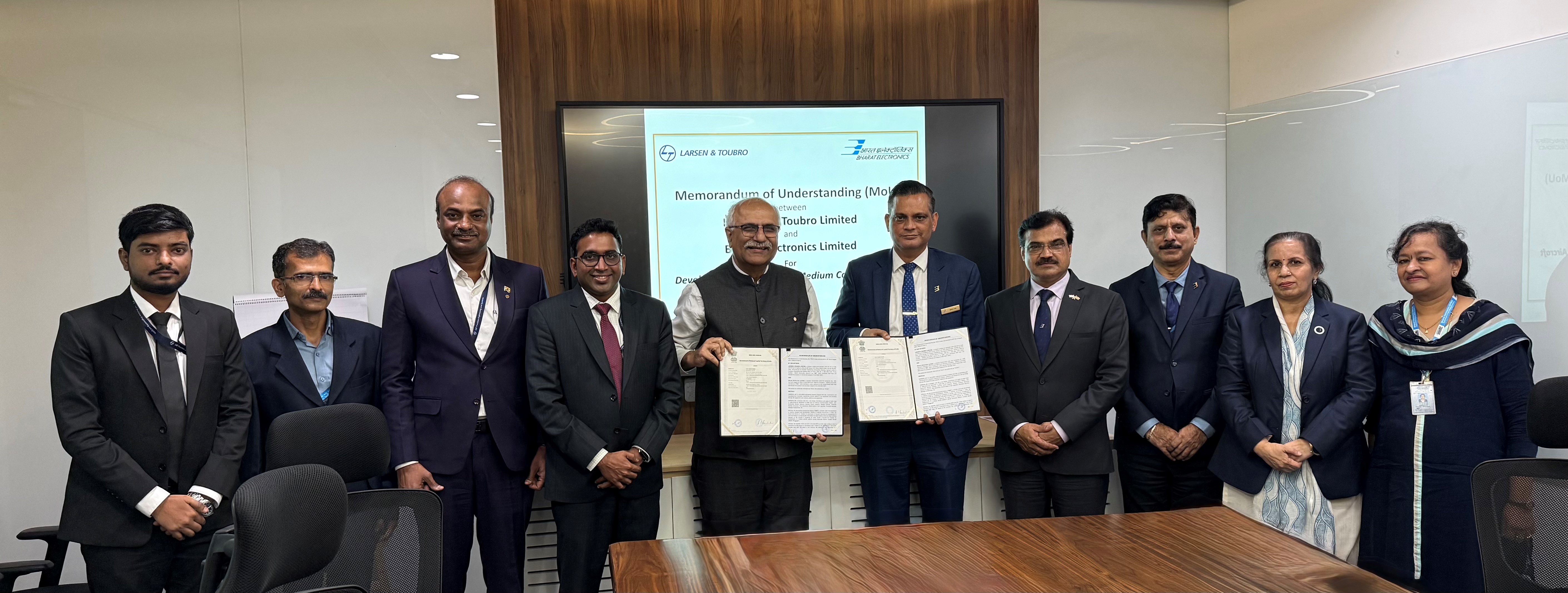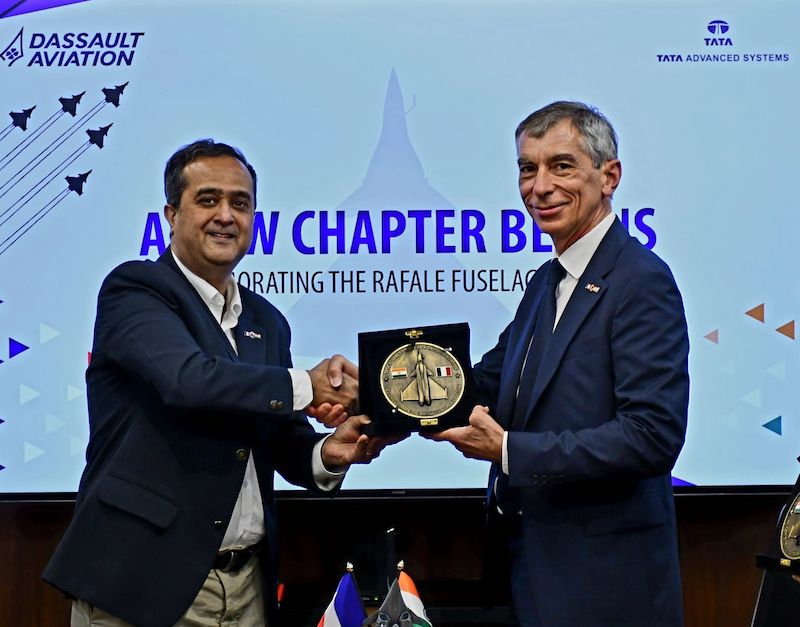 A TASL and a Dassault executive sharing a memento after signing the Rafale fuselage-manufacturing deal. (Photo: TASL/Handout)
A TASL and a Dassault executive sharing a memento after signing the Rafale fuselage-manufacturing deal. (Photo: TASL/Handout)
New Delhi: Dassault Aviation and Tata Advanced Systems Limited (TASL) have signed four production transfer agreements to establish India’s first Rafale fighter aircraft fuselage manufacturing facility outside France. The partnership, announced on Thursday, will see TASL produce critical structural components at a new facility in Hyderabad.
Under the agreement, TASL will manufacture key sections including lateral shells of the rear fuselage, the complete rear section, central fuselage, and front section of the aircraft. The facility is expected to begin production in financial year 2028, with capacity to deliver up to two complete fuselages per month.
The chairman and chief executive officer of Dassault Aviation, Eric Trappier, described the initiative as “a decisive step in strengthening our supply chain in India.” This marks the first time Rafale fuselages will be manufactured outside France.
The chief executive officer and managing director of Tata Advanced Systems Limited, Sukaran Singh, said the partnership demonstrates “deepening trust in Tata Advanced Systems’ capabilities and the strength of our collaboration with Dassault Aviation.”
Read also: France reluctant to share Rafale source code with India, reports say
The partnership builds on India’s existing Rafale programme, with the Indian Air Force currently operating 36 aircraft. The Indian Navy has also signed a ₹63,000 crore agreement with France in April 2025 for 26 Rafale (Marine) jets, to be delivered by 2030.
The manufacturing facility will incorporate advanced technology and production processes required for modern fighter aircraft production. TASL’s role extends beyond assembly to complete production of fuselage sections, requiring adherence to stringent aerospace quality standards.
The project aligns with the government’s “Make in India” and “Atmanirbhar Bharat” initiatives aimed at boosting domestic defence manufacturing capabilities. The facility is expected to create employment opportunities in high-skilled manufacturing roles while fostering specialized aerospace skills development.
The partnership reflects the evolution of India’s aerospace industry from primarily assembling foreign-designed components to manufacturing critical structural elements of advanced military aircraft. This progression represents advancement in industrial capability and readiness to assume greater responsibility in global aerospace supply chains.
Read also: Did Pakistan down IAF Rafale? This is what Air Force said
France’s willingness to transfer critical manufacturing capabilities reflects the deepening strategic partnership between the two nations. The cooperation aligns with India’s diversification strategy for defence partnerships while reducing dependence on single suppliers.
The facility’s capacity to serve both Indian requirements and global markets positions it as an export-oriented manufacturing unit. Rafale aircraft are currently in use or on order in several countries including Egypt, Qatar, the United Arab Emirates, Greece, Indonesia, Croatia, and Serbia.
The successful implementation could serve as a model for similar partnerships with other international aerospace companies, potentially leading to comprehensive transformation of India’s position in the global aerospace industry.

